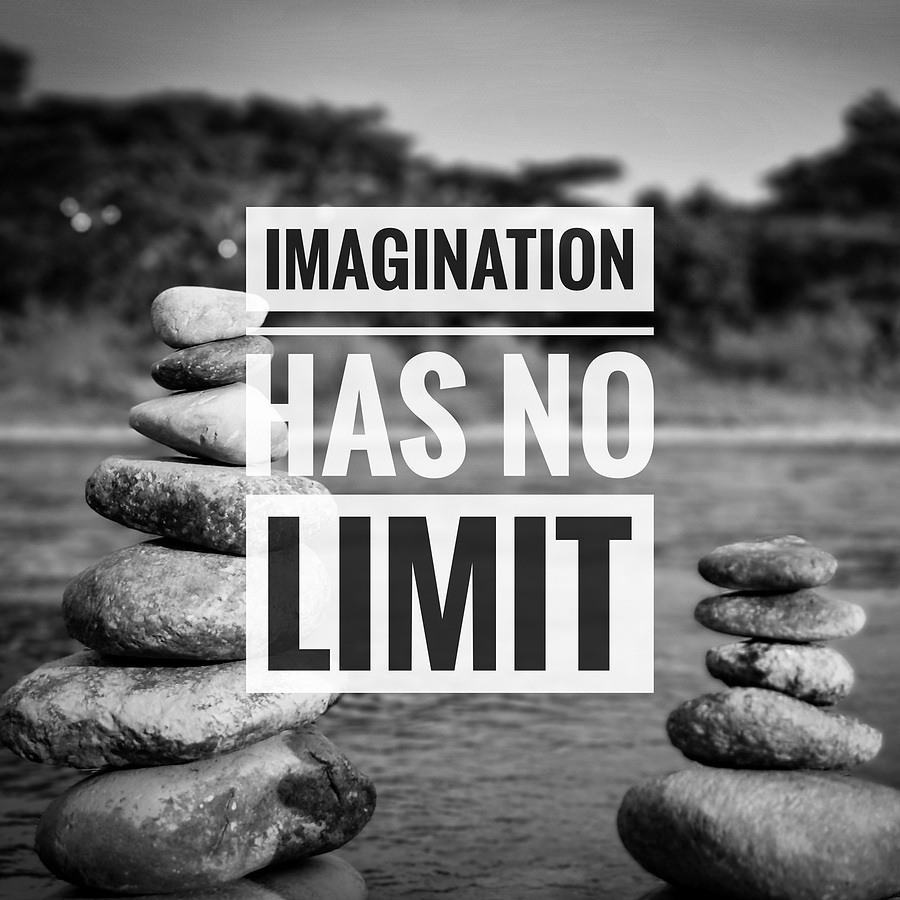No, it doesn’t. Look at nature or biology or astronomy and see how creative our God is. If anything, a Christian can see things clearer and be inspired to even greater creativity than someone who is not a Christ-follower.
But, I think writers of Christian books have limited their vision for what they can write about; and maybe, just maybe, publishers have a role to play in limiting creativity.
A couple of things to consider:
- Christian writers write from within their biblical worldview.
- Christian publishers should not be expected to violate their biblically based mission only to satisfy an author’s desire to be creative if #1 is not apparent.
All books (not only Christian) are classified under the BISAC system, and at the top of the categorization “tree” are 53 main subject headings. Only one of the 53 is specifically Christian, as Bibles have their own heading. Another heading containing some Christian books is “Religion,” which contains all religions. There are subcategories under a few others to accommodate Christian books.
Here are the 53 topline headings from BISAC:
- Antiques & Collectibles
- Architecture
- Art
- Bibles
- Biography/Autobiography
- Body/Mind & Spirit
- Business & Economics
- Comics & Graphic
- Novels
- Computers
- Cooking
- Crafts & Hobbies
- Design
- Drama
- Education
- Family & Relationships
- Fiction
- Foreign Language Study
- Games & Activities
- Gardening
- Health & Fitness
- History
- House & Home
- Humor
- Juvenile Fiction
- Juvenile Nonfiction
- Language Arts/Disciplines
- Law
- Literary Collections
- Literary Criticism
- Mathematics
- Medical
- Music
- Nature
- Performing Arts
- Pets
- Philosophy
- Photography
- Poetry
- Political Science
- Psychology
- Reference
- Religion
- Science
- Self-help
- Social Science
- Sports & Recreation
- Study Aids
- Technology & Engineering
- Transportation
- Travel
- True Crime
- Young Adult Fiction
- Young Adult Nonfiction
So much for blaming writer’s block on a lack of something to write about.
God is present in all of life. He is a creative God, and Christian writers can and should focus their worldview into all of life. Look again at the list above; and, using your imagination filtered through a Christian worldview, every one of them could be a potential category for an interesting book.
As a side note, it is unfortunate the Christian publishing world (which includes me) decided to leave poetry over to the secular writers. Might be time for publishers to reconsider that stand.
The best Christian books never come about as a result of strategic planning or a research project asking what readers want. They are always the result of an inspired, creative spark placed in the heart and mind by the ultimate creative source, the Holy Spirit.
Here’s a creative exercise.
Consider the above list and the not-so-apparent “Christian” topics like antiques & collectibles, mathematics, and true crime. How might a Christian writer approach these topics? Let’s see how creative you are!



 Six People You’ll Meet at a Writers Conference
Six People You’ll Meet at a Writers Conference

Let us now give this a thought,
and later on a hearing,
and we’ll be ready (will we not!)
for Christian engineering
texts that pay meet obeisance
to physics and the Lord of Hosts,
that weave throughout their lessons
the knowledge that we cannot coast,
but take responsibility
for service to a Greater Good,
and strive to use ability
that those who use end products would
find in them an upward yearning
placed there by the students’ learning.
Dan, for what it’s worth, I think that the development and perception of poetry in the last century has made of it a largely secular art form.
Academics can argue schools and movements until the cows come home, but the average reader will look at modern poetry through a lens of bewilderment (kind of like me looking at a Jackson Pollock canvas). I mean, like, dude, HUH?
To me, it’s a function of poetry becoming ‘art for art’s sake’ rather than a means of communication, and that’s simply made it less accessible. ‘Howl’ may have held great personal meaning for Allen Ginsburg (especially the bit he wrote while using peyote, or the subsequent part inspired by his stay in a mental hospital), but it leaves me on the sidelines, coldly await for the thing to end.
McLuhan may have felt that the medium is the message, but I don’t believe that holds in Christian writing, nor should it.
Anyone persistent enough to read thus far shall now be rewarded with a Modern Art joke.
It seems that Pope Pius XII wanted to give mass books a new look, and therefore commissioned George Braque for a cover illustration.
Alas, the artist did not deliver in timely fashion, and parishes were waiting on mass books that were not in the pipeline.
And thus, the Cubist Missal Crisis.
I agree that poetry has lost its luster for many of today’s readers. In fact, an experience taught us this. The year we moved, we sent out a Christmas letter to our friends, explaining the how and the why. I thought it would be cute to write it in the form of a poem. Months later, the same people who received the letter came to us and said, “When did you move? Why did you move?” Duh!
Perhaps those little hand-held devices we use so often, are to blame, and tv programming as well. Generally speaking, the average attention span has shrunk considerably. The world of colorful digital screens changes every few seconds, so why exert brain power to analyze or appreciate a poem when the digital world is so much more colorful? As a result, high school English teachers (I’m guessing) consider it a waste of time to get kids to think deeply. Just a thought from a former high school English teacher. I’m glad I taught before mass media changed kids’ brain function.
In case you’re wondering, I do use social media–but I appreciate poetry too.
Really interesting topic, Dan. Thanks for sparking and challenging our creativity with your post. Here are some of my first thoughts in answer to your question. A true crime book from a Christian perspective could tell a victim’s recovery story or a family’s journey of forgiveness and healing. An antiques & collectibles book could tell families’ faith stories through collections and furniture passed down through generations. A cookbook could do similarly with family recipes. A Christian mathematician could write about how he or she sees God in the precision of equations and things like the Fibonacci sequence, pointing to a Creator. Crafts & Hobbies could lend itself to a book of faith-based gifts or DIY projects for your home. I could see some sort of “meditative gardening” book or how-to on creating a prayer garden.
Dan, your point is well taken that our faith does not limit our creativity, it enhances it! Our viewpoint is unique. And I agree that Christians have limited their writing vision. But the reality is they are responding to the limits within Christian publishing, and the Christian church itself.
At a Christian writer’s conference I had a published science fiction author explain that the Christian bookstore businessman cannot risk carrying any book that might offend one of the little, old, “blue hairs” (his term, not mine) is mainstay customer, that might then shun the bookstore. Christian science fiction, horror and fantasy books are verboten. Thus Christian publishers know the various sorts of material that they won’t risk buying, so why publish? My aunt writes cozy mysteries and was told by a Christian publisher her victim could not be Jewish, but could be a European gypsy.
Further, Christians are reminded their books cannot be too preachy, too churchy, or push elements that have divided churches. And while they can write about any of the secular topics you listed, they must avoid gore, gratuitous violence, explicit sexual content, horror, the occult, magic and demons, as well as current social or political taboos.
I’m not saying all these limits are bad, but they are limits. Sometimes I feel like I’m being asked to compete with Isaac Asimov, Michael Creighton, Stephen King, or JK Rowling while staying away from certain topics and words they could use. I know many won’t agree or feel this way, but I often do.
As a poet and non-fiction writer, (in a very minor capacity) I can tell you that there is some difficulty getting overtly Christian poetry published because so many of the presses are linked to academia that is not responsive to the themes of grace, forgiveness, resurrection, and agape. However, that does not excuse me from trying to write the best and most truthful poetry or nonfiction that I can. As I see it my job is to write. And at its best, that act of putting the words together is a celebration of the gifts given by the Creator.
Christians can write in any genre. It doesn’t have to carry the label “Christian” or “Religion”. Look at the ways in which the works of J.R.R. Tolkien, an ardent believer, have influenced literature, film, and art, something he never intended. Sometimes God uses our gifts and talents in ways we could never have imagined. Perhaps there is a calling to write outside the Christian genre to reinsert faith into the culture.
There is a lot of very negative poetry out there celebrating divisiveness and some of the uglier aspects of fallen nature. We all know how much nonfiction writing out there is poorly researched and presented, or even worse, knowingly used to present half-truths and skewed messages. Here’s praying that we as Christians have the faith and persistence to keep writing in these genres and be conduits for God’s message in these art forms.
I think this is a very important article, Dan. As you know, I am devoted to discussion of the connections between Christianity and science, two categories often considered to be widely separate. The online quarterly magazine God and Nature (I am Editor-in-Chief) accepts Christian themed essays and POETRY on any subject that touches on science, broadly defined to include all of nature.